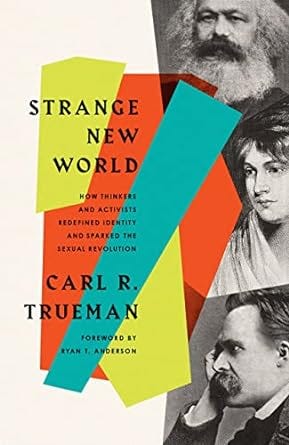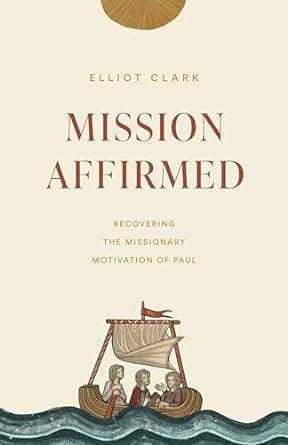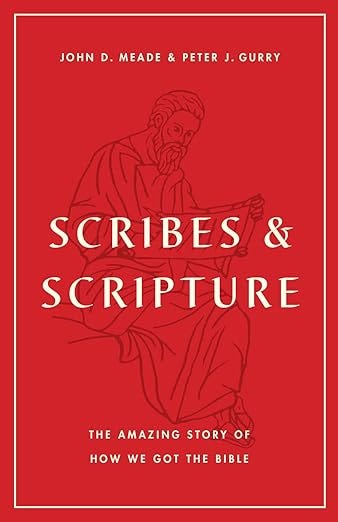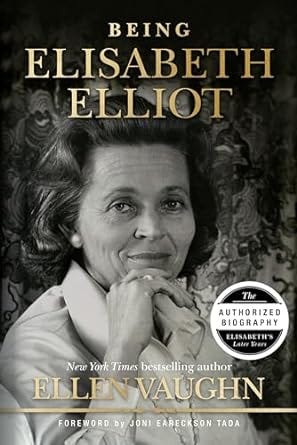The Best Books on Theology and Mission I Read in 2023
Four of my favorite books from the year (for those who care what I think)
In the age of the internet and social media, it is obligatory for all of us who read to share our favorite books of the year. I find myself skimming every post like this in December and wishlisting way too many titles than is good for me.
Looking back at the books I read in 2023, I’ve narrowed my favorite books down to only four, with several honorable mentions. Like I did last year, I’m going to limit my choices to the fields that I actually know something about—theology and missiology.
So, in no particular order…
Strange New World: How Thinkers and Activists Redefined Identity and Sparked the Sexual Revolution by Carl R. Trueman
Mountains of reviews exist for this one, which is a condensed version of Trueman’s earlier book, The Rise and Triumph of the Modern Self. Needless to say, Trueman really made a splash with this pair of titles. After reading Strange New World, I confess that the splash is much deserved. Essentially, Trueman sets out to explain all of Western Civilization to us from the Enlightenment to the transgender revolution.
Anyone who tries to create a narrative that explains basically everything out of what seems to most like a collection of unrelated people and events will face immense criticism, but I think Trueman does a fantastic job giving narrative structure to our culture in North America and Europe.
Due to the influence of Western culture on global culture, I’ve found myself returning to this book again and again, warning Africans that they are headed down the same road, only a decade or two behind the West. Unless something changes, the African resistance to the LGBTQ+ philosophy will not hold for long, and if you want to know why that’s the case, then read Trueman’s book.
Mission Affirmed: Recovering the Missionary Motivation of Paul by Elliot Clark
I must confess that my expectations were low for this book. As a scholar who has done a thing or two in Pauline theology (Stay tuned for my forthcoming monograph in 2024!), it’s easy to be skeptical when a popular level book comes out by someone who isn’t a Pauline scholar. But I actually loved Clark’s book.
Most faulty and short-sighted missionary strategies, such as the Church Planting Movement (CPM) methodology, appeal to Paul’s example by turning to only two or three crucial texts like Romans 15. Few involved in missionary strategy ever take a broader look at Paul’s letters and Luke’s narrative or truly appreciate the unique aspects of the Pauline mission in the first century AD.
Clark writes, “Today, I’m deeply concerned that much of evangelical Christian missions is a straw house built on a sandy shore” (25). I agree 100%, which is why I still think No Shortcut to Success, from my list last year, is such an important book, despite recent attempts to cancel it. Add Clark’s book to your reading list if you are preparing to enter into the flawed and fragmented world that is serving in evangelical global missions.
Scribes and Scripture: The Amazing Story of How We Got the Bible by John D. Meade and Peter J. Gurry
In the twentieth century, the greatest apologetic challenge that Christians faced was “Is the Bible true?” But in the twenty-first century, the issue has shifted to “Is the Bible trustworthy?” People are less concerned about the historicity of the virgin birth or creation v. evolution than they are about how we got the Bible? Who chose the books we regard as inspired? Can we trust the transmission of the text through time?
These have been hot issues, especially since The Davinci Code at the turn of the century. Sadly, few believers are equipped to respond to this apologetic challenge. Thankfully, two super-nerds (This is a term of affection) from Phoenix Seminary stepped up to the challenge and helped us all out.
Meade and Gurry address three primary topics: the text of the biblical books, the formation of the biblical canon, and the translation of the Bible. I’m looking for opportunities to include this book as required reading in future Bible courses, but you don’t have to wait for me to force you to read it. You can just pick up a copy voluntarily.
*Full disclosure: John gave me my copy, but there was no guarantee that I would like it or include it in my list. In fact, I’m sure the thought never crossed John’s mind since my readership is so low and this post will probably have 0% impact on sales. Nevertheless, any authors wanting to have a similar 0% increase in sales should also send me copies of their books.
Being Elisabeth Elliot: The Authorized Biography: Elisabeth’s Later Years by Ellen Vaughn
Finally, we get to read “the rest of the story” in this follow up to Becoming Elisabeth Elliot. Becoming covers the part of the story most of us know best: Elisabeth’s marriage to Jim, Jim’s death, her ministry among the Waorani, and eventual return to the United States. Being covers the rest of her life, including her two subsequent marriages.
Becoming is obviously the more engaging of the pair of books, but Being is equally important. Mostly, it is essential to help us resist the temptation, especially among missionary types, to idealize and romanticize Elisabeth Elliot. The overall message of Being is the flawed humanity of this woman, Elisabeth. Yet reading about her flaws and shortcomings made me appreciate her even more as a real example rather than as a missionary hero.
This pair of books, of course, are the authorized biographies, and while I don’t think that Vaughn seems to have intentionally censored any details, I do look forward to reading Lucy S. R. Austen’s Elisabeth Elliot: A Life. It will be interesting to see how all three of these books contribute to our understanding of this woman, who without question is the most well-known missionary of our time, even though she retired from Ecuador in 1963.






